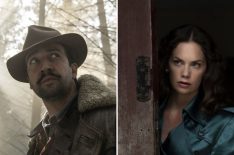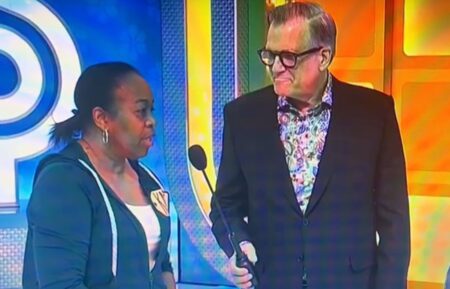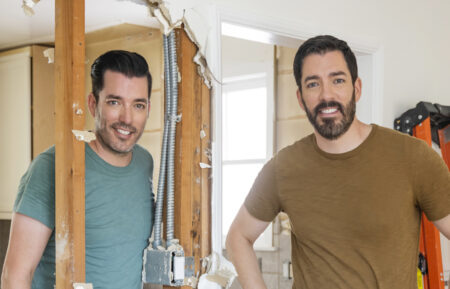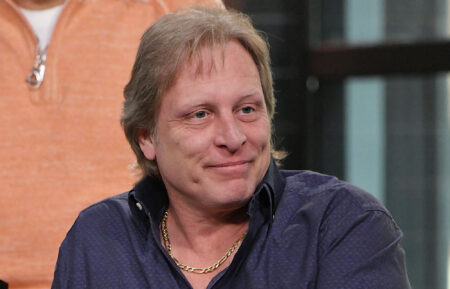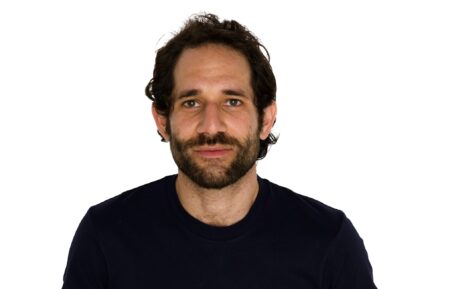Director Asif Kapadia on the Challenges of Making Soccer Legend ‘Diego Maradona’ Documentary
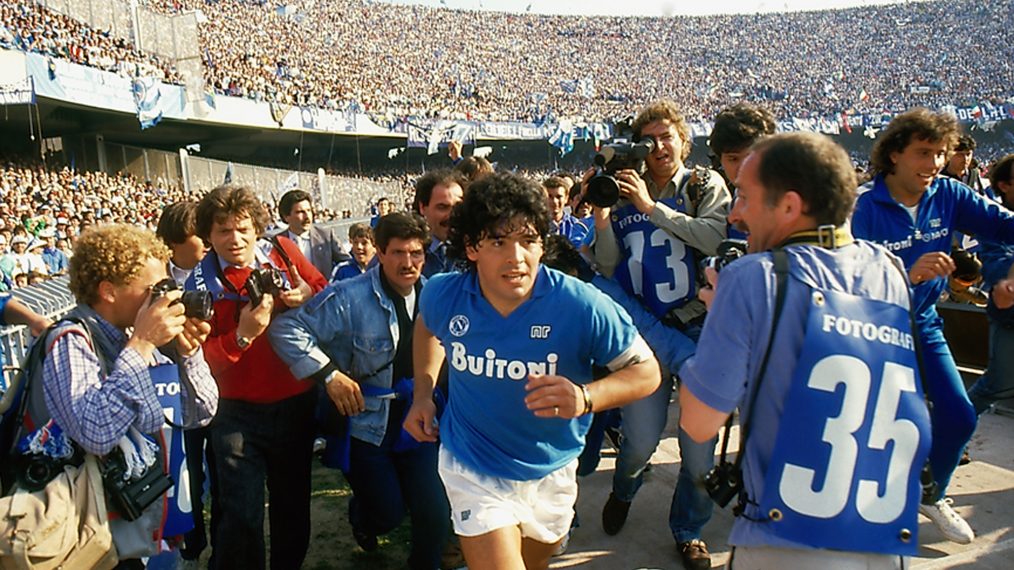
Preview
When looking at famed soccer player Diego Maradona’s professional success and life off the pitch, it reads like the premise that could fill many movie genres. Director Asif Kapadia, who won an Academy Award for Amy, saw the potential of telling the story of one of the greatest in the game.
The resulting documentary is a captivating look at a polarizing figure who reached the highest heights primarily focusing on his Naples journey over the course of seven years. From leading Napoli and scoring the “Hand of God” goal in the 1986 World Cup to the lowest of lows falling prey to the partying allure of drugs and alcohol. It’s a cautionary tale, sports biography and drama all in one that Kapadia hopes resonates with diverse audiences.
Ahead of the doc’s HBO premiere, Kapadia talks about the process of pouring three years into sifting through 500 hours of never-before-seen archival footage and conducting countless interviews to paint an actual portrait of Maradona.
What did it take to earn Diego’s trust and those around him when it came to the archives? Did it take a lot of prodding or did they know your reputation?
Asif Kapadia: I think it started with assistant producers who were trying to access the footage that had been shot when he was in his prime, particularly his time in Italy. The producers were trying to get access to the material, but for the use of the materials we needed Diego. The good thing was he had seen Senna and liked it. One of my previous films. While I was doing the deal, Amy won the Academy Award. I think that help knowing the next film was going to be about him. All of that was helpful.
Why did you want to make this your follow-up to Amy, which got such critical acclaim?
Partly you don’t know when you are going to win an Academy Award or if you will ever win one. Sometimes the deals come through. I thought it was interesting that I made two films about brilliant people Senna and Amy, who tragically died young. If I was going to do a third film, it was interesting that this guy was still around. I could interview him. I could meet him. I could interview him. He has lived a longer life and has chaos seemingly wherever he goes. I thought it would be an interesting new challenge.
Around the world he is absolutely massive. I thought it would be an interesting character. If I was going to do it, I knew it was going to be slightly different. We had the challenge of not only meeting him but also how we can squeeze his life into one movie. Or which section of his life do we choose. I was interested by the fact I knew it wasn’t going to be an easy one. He is quite a diverse character. He is quite challenging. I liked the difficulties and challenges. Every film is a new battle. That was all part of it.
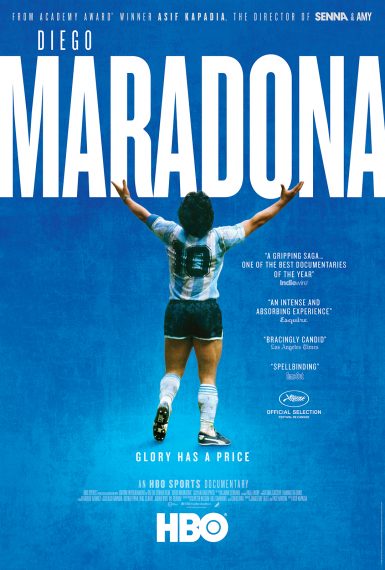
How many times did you meet with him during the process?
I think I met with him four or five times. Sometimes it was a meeting. Sometimes it was an interview. Some interviews were good. Sometimes they were less good. Sometimes he was in a good mood. Sometimes he was not. I thought i got a good range of experiences with him. At the time he was living in Dubai, and I am in London. That’s where the edit happens and where production is based. Even living in Dubai, the film is largely set in Naples, Southern Italy.
A lot of the contributors are based in Buenos Aires. It was this epic journey of trying to line up meetings with Diego eight months in advance because his schedule might be really busy. He may be traveling. There were a lot of logistics and issues to get by to put this together. I think in total the original contract stated I would have nine hours of interviews with Diego, split into three interviews. In the end, he never sat down for three hours. He’d sit down for an hour, hour-and-a-half and be tired or bored or have somewhere else to go. We’d carry over a time for the next day and next day.
I read it took three years of diving into this subject with more than 500 hours of footage and archivists at your disposal. You mention the challenges of putting this all in one film. Was there ever a thought of breaking this project up into parts?
There were conversations and thoughts about it. Because my background is in making films. The whole idea behind Senna and Amy was trying to take the characters that larger-than-life, charismatic, really talented, amazing, and put them on the big screen to get audiences to see them collectively.
You have to focus down and produce and find a way to draw out what the essence of the character was. What is the essence of the story? It could be another director comes along to do a 10-part series on Maradona, It takes longer to make them shorter funny enough. It was the continuation of Senna and Amy. It’s kind of like a trilogy of stories and characters. They all have this element of fame comes to them very young and what happens to them in their life. I always thought of this one as a movie.
In your work, you have these larger-than-life figures that you bring down to the ground. What were some of the big takeaways from interacting with Diego? He is this well-known figure, but you got to really dig into who he is. What kind of struck you through the process that caught you off guard?
One of the main things is you live your life as being quite a person who has done very nice or likable things per say. He has become quite famous and controversial. Things that he does and says. He has people who love him and people who hate him. Interesting thing was to understand him. I’m interested in people and why they become the way they are.
The film is about what made him into the person a lot of people around the world. I wanted to go back to when he was the best. What made him the best. Where was he when he became the best. What happened in his life that sent him leads us to the guy he is now. What I found from feedback is people who went in not really liking him were feeling sorry for themselves. They couldn’t believe they would care about someone who they spent a lot of time disliking. That challenge, taking on characters that are slightly outsiders, not part of the establishment or system.
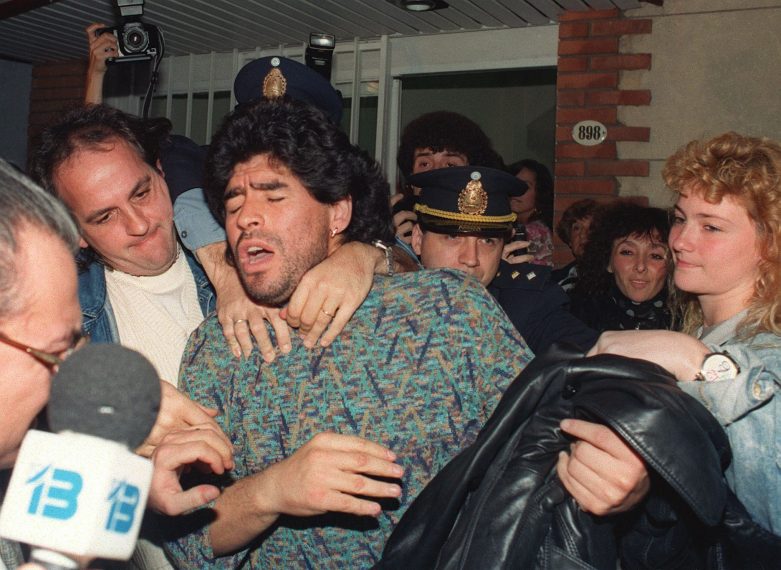
When it reaches HBO, it will open up the film to a new audience including those in the United States. Do you see them receiving it differently than others who have already seen it?
I don’t know. That’s the fun of it. You make the movies and do the work. You have a good intention and hand it over to the audience. I have been traveling through Europe and different territories. It’s hard not to have an opinion. There are large portions of the U.S. who don’t know who he is at all. Other people who are big soccer fans or Latinos, ex-Europeans..l think the experience will be very different. I hope people see it, talk about it and word of mouth grows even for people who don’t like soccer or sports. I found a lot of people who don’t watch soccer come up to stay to me, “I get it. I get why the game is a big thing.”
I had Senna where there were people who thought the most boring thing in the world was motor racing and driving in circles, but the charisma of the character pulls you in. I’m hoping the wide audience of HBO are taken to a time and place they may never have been. It’s a sports film, but it’s also a gangster film. There is a lot of stuff going on there. It’s sort of like an early Scorsese film. The characters are street guys. Maradona is a street guy. He is a hustler. It’s about what happens when you become successful and powerful and god-like figure.
Has Diego gotten a chance to see it?
Maradona hasn’t seen it yet. We’ve tried to show it to him many times before we completed it. He is either bus or can’t do it for some reason. We tried to get him to come to Cannes Festival where it premiered, but he couldn’t travel. In a couple of weeks I’m going to go to Buenos Aires as I’ve planned to go to him. We have shown it to the other characters and key people in the film. They really like it. It’s a tough film. The places we go with the film. It’s a very challenging film, but I’d say very honest as well. The word from people who know him has been positive.
Do you think it’s scheduling or logistics, but part of it is having to brace himself for what he might see?
I think it’s a little bit of both. As time has gone by, I think we might be able to work around this or that for him to see it. It is quite challenging at times. He is not someone who deals with being challenged. He is someone who would never admit making a mistake. It’s like the whole world is wrong and he is right.
He is a very particular kind of person. There is an element of fear or that he doesn’t want to see it or that he is afraid. He has met journalists and everyone wants his opinion on everything. I don’t think anyone has really done this. I don’t know if he is ready to look back at his life with his kids, ex-wife, friends everyone says he should do it. Of course Maradona being Melodona, he is quite contrary. I’m hoping to find a way to get him to see it and is willing to look at the highs and lows of his life.
Diego Maradona premieres Tuesday, October 1, 9/8c,HBO



